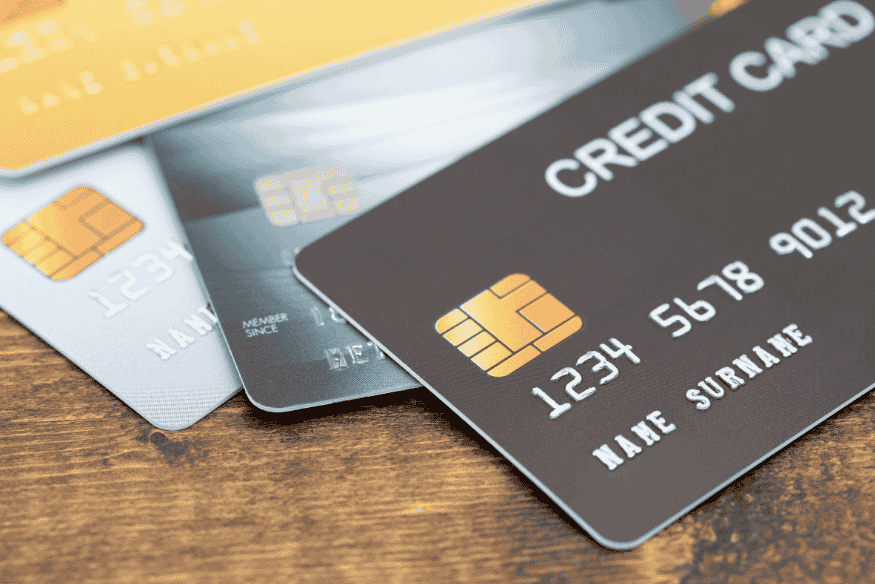Knowing your credit limit is key to good money management. It’s the highest amount you can borrow from a lender. This includes credit cards and lines of credit.
Handling your credit limit well can greatly affect your financial health. It’s not just about knowing your limit. It’s also about using it wisely to keep your credit score high.
By understanding your credit limit and managing it well, you can make smart choices with your money. This helps you avoid financial traps and use your credit wisely.
Key Takeaways
- Your credit limit is the maximum amount you can borrow on a credit card or line of credit.
- Managing your credit limit is vital for maintaining good financial health.
- Responsible credit limit management can help improve your credit score.
- Understanding your credit limit helps you make informed financial decisions.
- Effective credit management involves knowing and adhering to your credit limit.
Understanding Credit Limits
Knowing your credit limit is key to managing your money well. It’s the highest amount a lender will lend you through a credit card, loan, or other credit options.
Definition and Basic Concepts
Your credit limit depends on your credit score, income, and how you’ve paid back debts in the past. It’s a big part of your financial picture, affecting how easily you can get credit.
What Constitutes a Credit Limit
Your credit limit shows how trustworthy you are with money. Lenders look at if you pay debts on time and your overall financial health to set this limit.
Different Forms of Credit
Credit limits apply to many types of credit, such as:
- Credit cards
- Personal loans
- Overdraft facilities
Each type has its own rules for setting credit limits.
How Credit Limits Are Determined
Lenders consider many things to decide your credit limit. They look at your income, job stability, credit history, and current debts. A good credit utilization ratio shows you handle credit well, which can help increase your limit.
Types of Credit Limits in Finland

It’s important to know about the different credit limits in Finland. These limits change based on the credit product and how likely you are to pay back the money.
Credit Card Limits
Credit card limits depend on your credit score, income, and other factors. These limits show how much you can spend with your card.
Consumer Loan Limits
Consumer loan limits are the max you can borrow for personal use. They consider your income, credit history, and how much debt you have compared to your income.
Overdraft Facilities
Overdraft facilities let you take out more money than you have, up to a certain limit. There are various types of overdraft facilities in Finland.
Bank Account Overdrafts
Bank account overdrafts are tied to your current account. They provide a safety net for unexpected expenses.
Flexible Credit Accounts
Flexible credit accounts offer a revolving credit line. You can use it as needed, making it a flexible financial tool.
| Credit Product | Typical Limit Range | Key Characteristics |
|---|---|---|
| Credit Cards | €500 – €10,000 | Revolving credit, interest charged on outstanding balance |
| Consumer Loans | €1,000 – €50,000 | Fixed loan amount, fixed interest rate, repayment term |
| Overdraft Facilities | €500 – €5,000 | Linked to current account, flexible access to funds |
The Importance of Your Credit Limit
Your credit limit is key to your financial health. It decides how much you can borrow and affects your credit score. It also impacts your financial stability.
Impact on Financial Flexibility
A higher credit limit means more financial freedom. You can buy big things or handle sudden costs. But, you must use it wisely to avoid debt.
Relationship with Credit Utilization
Credit utilization is how much you owe compared to your limit. It’s a big part of your credit score. Keeping this ratio low helps your score.
Emergency Financial Planning
A good credit limit is great for emergencies. It acts as a backup for unexpected bills, like car repairs or medical costs. This helps you stay financially stable.
| Credit Limit Aspect | Financial Impact | Best Practice |
|---|---|---|
| Financial Flexibility | Allows for larger purchases and emergency funding | Maintain a balance between limit and spending |
| Credit Utilization | Affects credit score; lower ratio is better | Keep credit utilization below 30% |
| Emergency Planning | Provides a financial safety net | Use sparingly for emergencies only |
How Credit Limits Work in Finland’s Banking System
Finland’s banking rules greatly affect how credit limits are set and managed. The country’s banks follow strict rules to ensure they lend responsibly.
Finnish Banking Regulations
The rules in Finland protect both lenders and borrowers. They guide how credit limits are set. This includes looking at income, credit history, and current debts.
The Role of Suomen Asiakastieto
Suomen Asiakastieto, Finland’s credit bureau, is key in setting credit limits. It gives lenders detailed credit reports. This helps them decide if someone or a business can get credit.
Differences from Other European Countries
Finland’s way of handling credit limits is different from other European countries. For example, Finland has stricter rules about sharing and using credit information.
| Country | Credit Information Sharing | Regulatory Framework |
|---|---|---|
| Finland | Strict regulations | Comprehensive framework |
| Sweden | Moderate regulations | Flexible framework |
| Denmark | Lenient regulations | Less comprehensive framework |
Knowing these differences helps you understand credit limits in Finland better. It aids in making smart choices about your money.
Factors That Affect Your Credit Limit in Finland
In Finland, several key factors determine your credit limit. Knowing these can help you make better financial choices. Lenders look at different parts of your financial life to decide how much credit to give you.
Income and Employment Stability
Your income and job stability are very important. A steady income and a stable job show lenders you can pay back the credit. A higher income can lead to a higher credit limit, showing you can handle more debt.
Payment History and Behavior
Your payment history is also key. Lenders check how you’ve handled credit and loan payments in the past. Consistent, on-time payments can increase your credit limit. But late or missed payments can lower it.
Existing Debt Obligations
Existing debts, like mortgages and other loans, matter too. Mortgage impact and other outstanding loans can change your credit limit. They affect your debt-to-income ratio.
Mortgage Impact
A mortgage can greatly affect your credit limit. It’s a big debt. Lenders look at your mortgage payments when deciding your creditworthiness.
Other Outstanding Loans
Other loans, like personal or car loans, also matter. The total debt you manage can influence your credit limit. It shows how much more credit you might get.
How to Check Your Current Credit Limit

It’s easy to find out your current credit limit through Finnish banks. You can use different ways to get this info. This helps you manage your money better.
Online Banking Methods in Finnish Banks
Online banking services from Finnish banks make it simple to check your credit limit. Just log in to your account. Then, go to the section for your credit card or loan details. Your current limit will be shown there.
Mobile Banking Apps
Mobile banking apps from Finnish banks are also handy. They let you easily see your credit limit. With just a few taps on your phone, you can get to your account info.
Contacting Customer Service
If you like talking to someone or need help, call your bank’s customer service. They can tell you your current credit limit. They can also answer any questions you have about your account.
| Method | Convenience Level | Accessibility |
|---|---|---|
| Online Banking | High | 24/7 |
| Mobile Banking App | High | 24/7 |
| Customer Service | Medium | Banking Hours |
Effective Credit Limit Management Strategies
To get the most from your credit, it’s key to manage your credit limits well. It’s not just about how much you can borrow. It’s also about using that info to make smart money choices.
Setting Personal Spending Thresholds
One important strategy is setting spending limits for yourself. This means deciding on a max amount you’re okay spending on your card or through other credit options in a set time. Setting a limit below your actual credit limit helps avoid overspending and lowers debt risk.
Tracking Your Credit Utilization
It’s vital to keep an eye on your credit use ratio. This ratio shows how much you’re using compared to your limit. Aim for a ratio under 30% to keep your credit score healthy. Watching this ratio helps you stay in control and prevents credit score drops.
Planning for Large Purchases
Big buys need careful thought. They can hurt your credit score if they raise your credit use ratio too high. Think about saving up or using another payment method instead.
Seasonal Spending Considerations
Spending habits change during holidays or special times. It’s crucial to adjust your spending limits to avoid going over. Plan for these times by upping your limit (if you can) or setting aside money for these costs.
Holiday and Travel Planning
Travel or holiday plans mean more expenses, like eating out or shopping. Tell your bank about your travel plans to avoid flagged transactions. Also, watch out for any fees on your card for foreign use.
- Regularly review your credit limit and adjust as necessary.
- Keep track of your spending to stay within your set thresholds.
- Plan ahead for large or seasonal expenses.
When and How to Request a Credit Limit Increase
Knowing when and how to ask for a credit limit increase is key to managing your money well. Getting a higher limit can give you more freedom with your finances. But, you need to time it right and prepare well.
Timing Your Request Strategically
The timing of your request matters a lot. It’s best to ask for a higher limit when your income is steady or has gone up. For example, after getting a promotion or a raise, you can show your bank that you’re doing better financially. Don’t ask during tough financial times or right after missing payments.
Preparing Documentation
To support your request, you’ll need to gather documentation. This includes proof of income, like recent pay slips or tax returns, and an updated look at your finances. Having your documents ready will help make your case stronger. For more tips, check out this resource on increasing your credit limit.
Communicating with Finnish Banks
Good bank communication is crucial for a successful request. You can talk to Finnish banks in person or through online applications.
In-Person Requests
Going to a bank branch in person lets you have a face-to-face talk with a bank rep. This is great because you can discuss your finances in detail and answer any questions they have.
Online Application Processes
Many Finnish banks let you request a credit limit increase online. You can do this through their online banking or mobile apps. Make sure you have all your documents ready to upload or refer to during the application.
| Request Method | Advantages | Considerations |
|---|---|---|
| In-Person | Direct interaction, detailed discussion | Requires a visit to the bank branch |
| Online | Convenient, time-saving | Ensure all documents are ready for upload |
Warning Signs of Credit Limit Problems
Knowing the signs of credit limit issues can help you manage your money better. Spotting these signs early can avoid financial trouble and keep your credit healthy.
Consistently Reaching Your Limit
If you always hit your credit limit, it’s time to rethink your spending. Review your budget to find ways to spend less. This can stop you from overspending and avoid credit problems.
Relying on Credit for Basic Expenses
Using credit for everyday needs like food or bills shows financial trouble. Make a budget for all your essential costs to avoid credit use. Changing how you spend can help you control your finances better.
Making Minimum Payments Only
Only paying the minimum on credit cards can extend your debt time and increase interest. Try to pay more than the minimum to pay off debt faster.
Finnish Debt Collection Processes
In Finland, debt collection follows strict rules. If you can’t manage your credit limit, you might face debt collection. Knowing these rules can help you deal with debt issues.
Understanding Credit Limit Impact on Your Credit Score
In Finland, knowing how your credit limit affects your score is key to good finances. Your credit score is very important to lenders. They use it to decide if they’ll give you a loan or credit.
Credit Utilization Ratios
Your credit utilization ratio is a big factor in your score. It shows how much debt you have compared to your credit limit. It’s best to keep this ratio under 30%. For example, if you have a €1,000 limit, aim for a balance under €300.
| Credit Limit (€) | Recommended Usage (€) | Credit Utilization Ratio (%) |
|---|---|---|
| 1,000 | 300 | 30 |
| 2,000 | 600 | 30 |
| 5,000 | 1,500 | 30 |
The Finnish Credit Information System
The Finnish credit system, run by Suomen Asiakastieto, tracks your credit habits. It helps lenders see if you’re a good risk. Your credit limit and how you use it are part of this data, affecting your score.
Payment Default Records (Maksuhäiriömerkintä)
Not managing your credit limit well can hurt your score. Missing payments or going over your limit can lead to “maksuhäiriömerkintä” records. These records are bad for your score. It’s important to avoid them.
By managing your credit limit smartly, you can boost your credit utilization ratio. This helps keep your credit report clean and improves your score.
Common Credit Limit Mistakes to Avoid

Managing your credit limit well is key to a healthy financial life. Many people make mistakes that can hurt their finances. Knowing these mistakes can help you steer clear of them.
Maxing Out Your Credit Cards
Using all your credit card space is a big credit mistake. It tells lenders you might be a riskier borrower. Keep your credit use under 30% to avoid this. For tips on using credit cards wisely, check out The Money Pages.
Applying for Too Many Credit Increases
Applying for many credit limit increases too fast can worry lenders. Each application can lower your score with a hard inquiry. Space out your requests and only apply when you really need to.
Ignoring Changes in Terms and Conditions
Credit card rules can change without warning. Ignoring these changes can lead to surprise fees or higher rates. Always check any updates from your credit card company and understand how they might affect you.
Not Adjusting Limits for Seasonal Needs
Your credit needs change with the seasons or your income. Not adjusting your limits can cause financial stress. Check your budget often and ask for limit changes to fit your finances.
Overlooking Currency Conversion Fees When Traveling
When traveling, watch out for currency conversion fees on your credit card. These fees can quickly increase your spending. Use a card with low or no foreign transaction fees to save money.
By knowing these common mistakes, you can better manage your credit. This helps you avoid financial problems.
Conclusion
Managing your credit limit well is crucial for keeping your finances flexible and your credit score high. Knowing how your credit limit works helps you use your credit wisely.
Your credit limit depends on your income, job stability, and past payments. To handle your credit limit well, keep an eye on how much you spend. Set spending limits for yourself and plan big purchases ahead.
Using credit responsibly boosts your financial health. It’s important to be careful with credit cards, loans, and overdrafts. Keeping an eye on your credit limit is key.
Now that you know more about managing your credit limit, use this knowledge. It will help you deal with Finland’s banking system better. And you’ll make the most of your money.









